At this writing, we are immersed every weekday for six weeks in a Spanish language class. Studies show that language shapes the way we interpret reality. So far it has been fascinating and our teacher is excellent. Learning a different way to speak, read, and write helps discover new ways to see the world—it is like discovering a new way to think.
Gina and I both value close relationships and we believe that learning Spanish will allow us to form deep human connections with our fellow residents. We decided to immerse ourselves in Spanish culture by not living in an enclave of American expats such as Malaga or Valencia. Very few people speak English in our neighborhood (our barrio). Les Tres Torres is a historic and venerable Catalan neighborhood.
We have also made the difficult decision to depend on AI translators such as Google Translate and DeepL as little as possible. Admittedly, the translators have been invaluable as we have navigated the maze of bureaucracy here, but we do our best not to depend solely on them. It is a communication that’s technically proficient but ultimately hollow emotionally.
We are finding there is no single correct way to transpose a sentence from English to Spanish—it’s an art rather than a science. For example, the app Duolingo gave us a great start but we were confused because many of the words and pronunciations are completely different in real life.
Most of us know gracias means thank you, but we did not realize that in Latin American Spanish the c in gracias is soft, but in Spain, the c in gracias is a “th”, “V” is pronounced like “B”, and the Latino word computadora (computer) is pronounced ordenador. The language in Spain is the purest form of Spanish. As people moved from their homeland to South and Central America and the Caribbean, the language gradually changed according to the new culture.
The intercultural components of our language class have already proven a tremendous benefit—even though we have completed only ten days. The metaphors of this culture are fascinating, for example, our profesor Oliver will ask us to común when he wants us to work together in groups. I find común a far more intimate term than “work together.” It is an apt metaphor for the Spanish who work to live rather than Americans who live to work. Another example is the word mañana which literally means tomorrow but metaphorically means “unlimited future.”
Time is a curious conundrum here in Spain. In America, timeliness is a moral imperative—the clock has been endowed with a great deal of power, however, in Spain time is approached differently.
Except for the extremely touristic areas, it is considered the height of rudeness to bring the check or expect people to vacate their restaurant table until they are completely finished socializing. The time following the meal over coffee or wine is called the sobremesa which means “after-meal conversation” and unlike America, it is taboo to hurry and turn a table.
In Barcelona, we live by the Mediterranean Sea so we have a tidal view of time (similar to our beach cottage in Dunedin), while farmers who live just beyond Mont Tibidabo (only a few miles away from our neighborhood) follow the rhythms of the seasons, like we did at our farm in Tennessee.
Here in Barcelona, we are trying to adopt the Australian Aboriginal’s unique view of time, where past, present, and future are indistinct from one another. Writer Hanley Stanner terms the concept everywhen. I plan to write much more about this concept in the future—I love it. As an artist, I prefer abstract ideas much more than spatial terms. And because we are retired (another word that is beautifully expressed in Spanish jubilar) and free from all relational and financial responsibilities, we have the hope of actually living an everywhen life, therefore, because we have fewer demands on our time, we are time-affluent.
As we grow older, we like abandoning the concept of time. We no longer want to describe it as long or short or passing, or as something that can be saved or wasted. We want to savor everywhen to escape the oppressive feeling of watching the clock and calendar. We experience time in different ways at different ages and in different countries. At times, it is vertigo-inducing, but we feel it is worthwhile to enjoy every minute, ha, just kidding, to enjoy every moment.
The concept of space may also seem abstract, but for us, here in a new country and culture, it has become tangible and full of sensory details. Home spaces are extremely different here than in America. In the city of Barcelona, we live vertically rather than horizontally as in the suburban US. We are finding that we enjoy vertical communal living much more than being sequestered on a horizontal plat of soil on a back porch behind a tall wooden fence.
Space is deeply interconnected with culture and life experience. Our apartment floor has five other apartments and a hallway connecting them with an elevator and stairs. We have already met three of our five sets of neighbors and one (our next-door neighbor) invited us to his mountain home in Andorra. He and his partner are Catalan and live here only a few weeks of the year for doctor’s appointments, etc.
Our apartment has massive sliding doors and windows in every room that open all the way so that we can feel the gentle cooling sea breezes waft through our living space. With few bugs (we have lots of bats to eat the few insects that exist here) there are no screens, so it feels like the walls dissolve into the sensory elements and myriad beauties of nature. It also provides an epic and scenic view of life as it happens in our neighborhood.
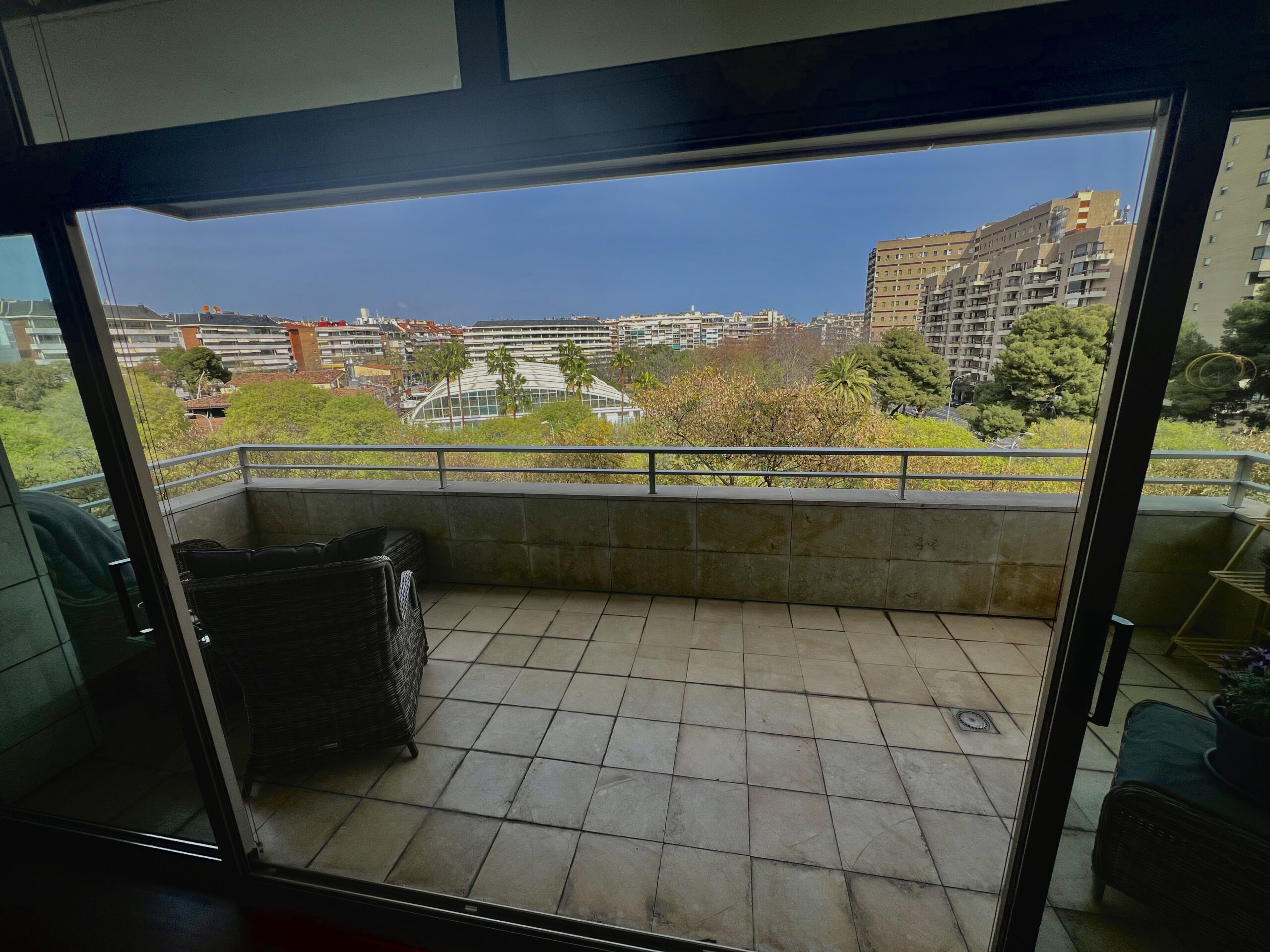
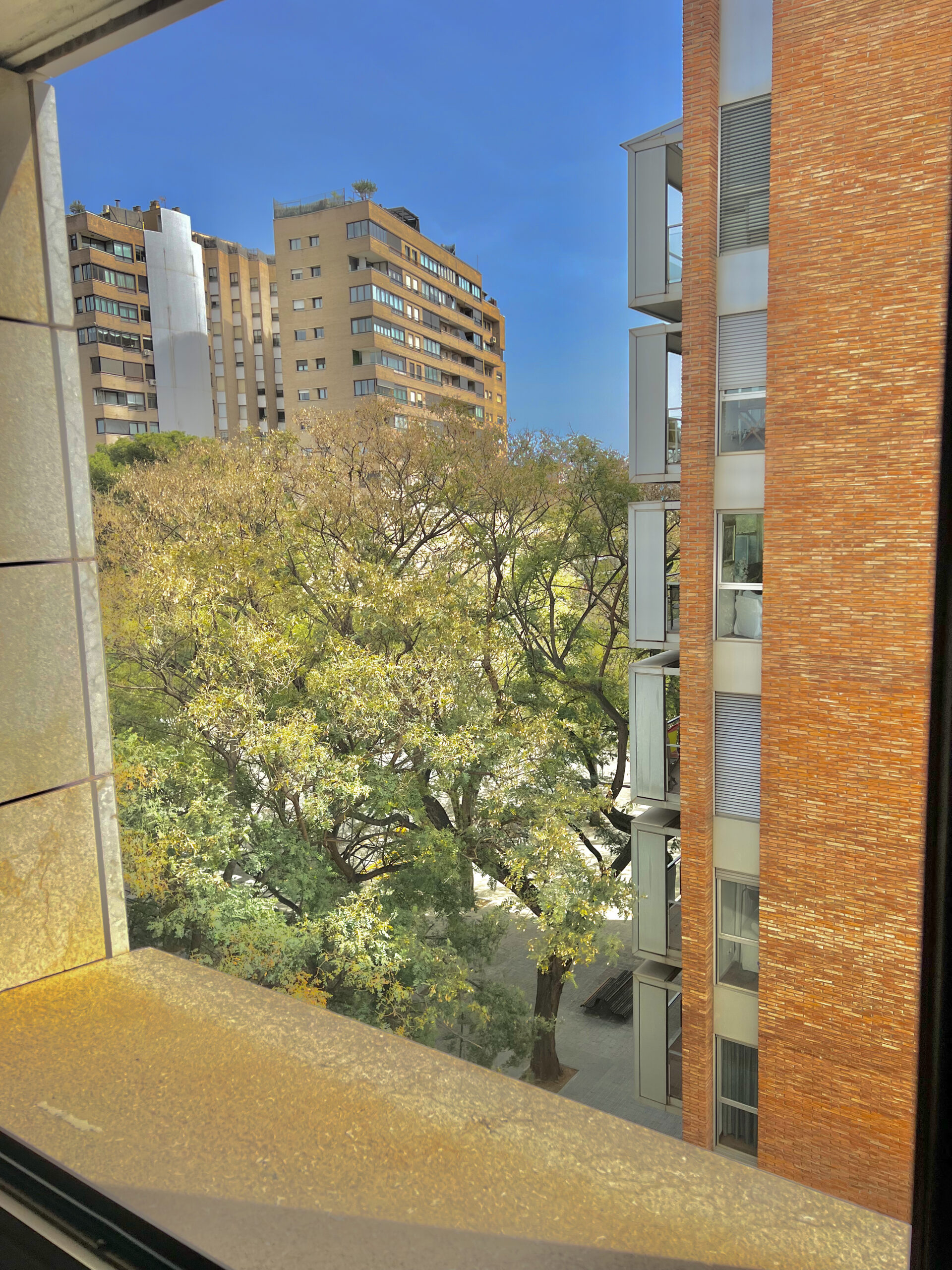
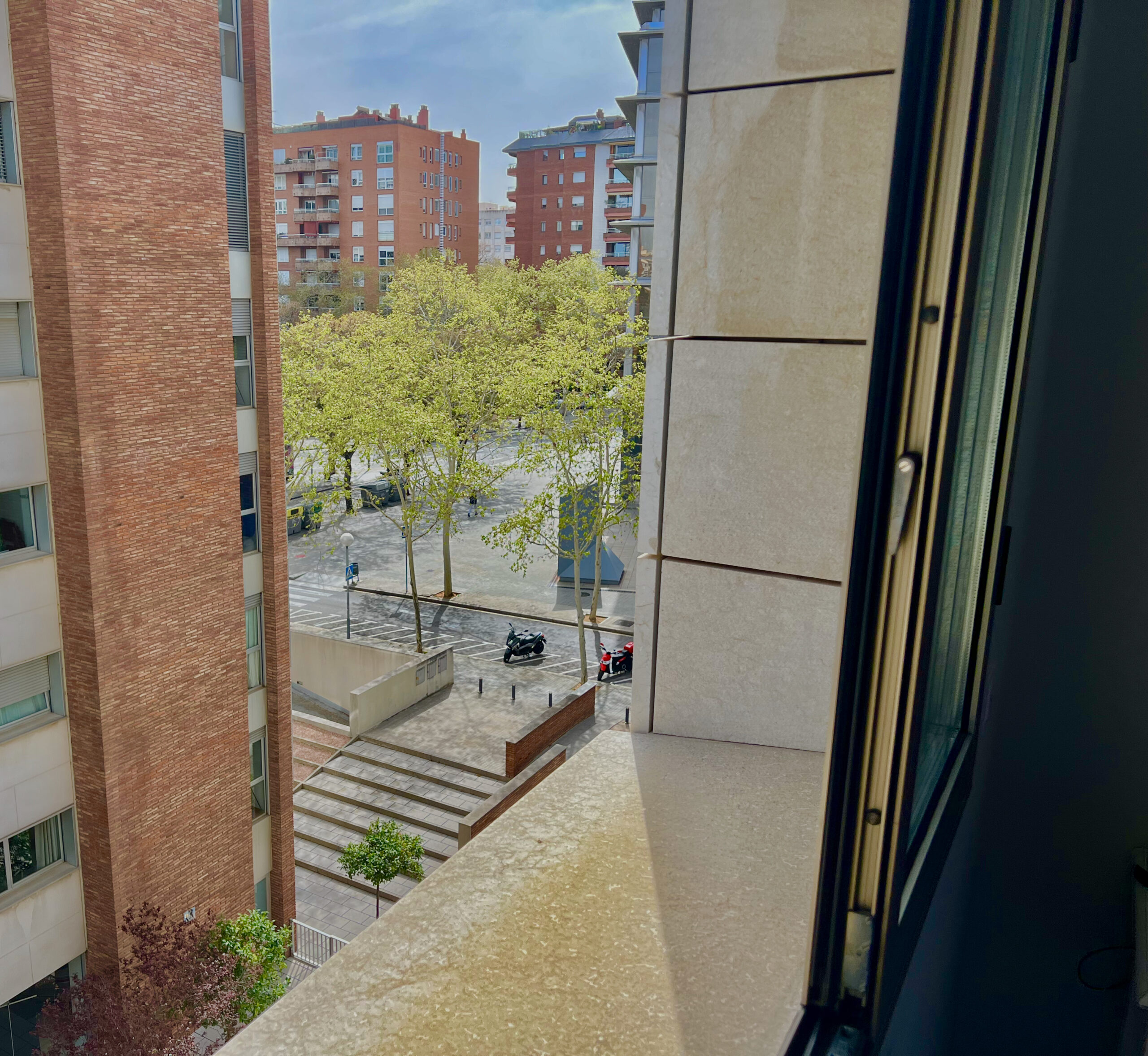
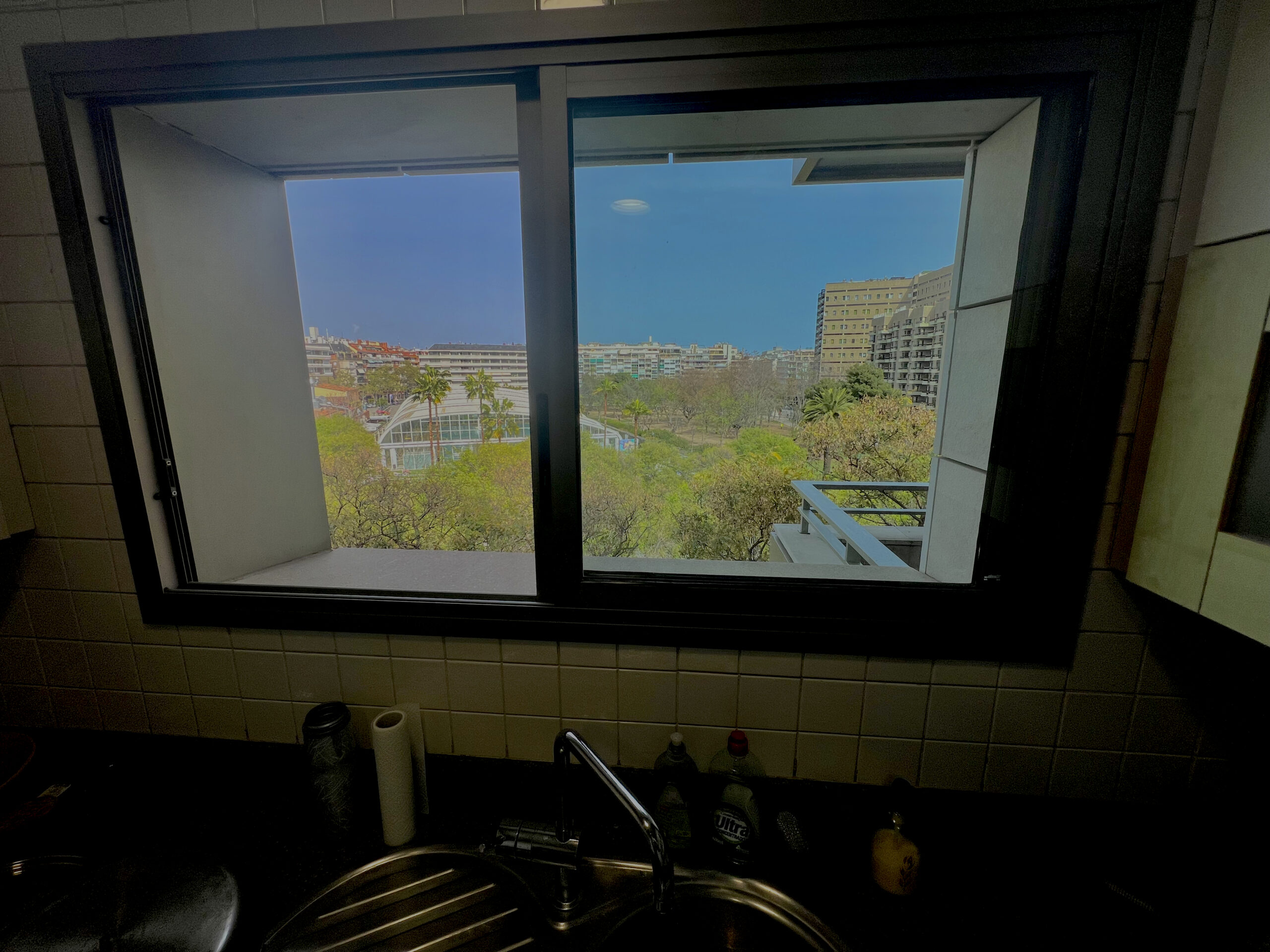
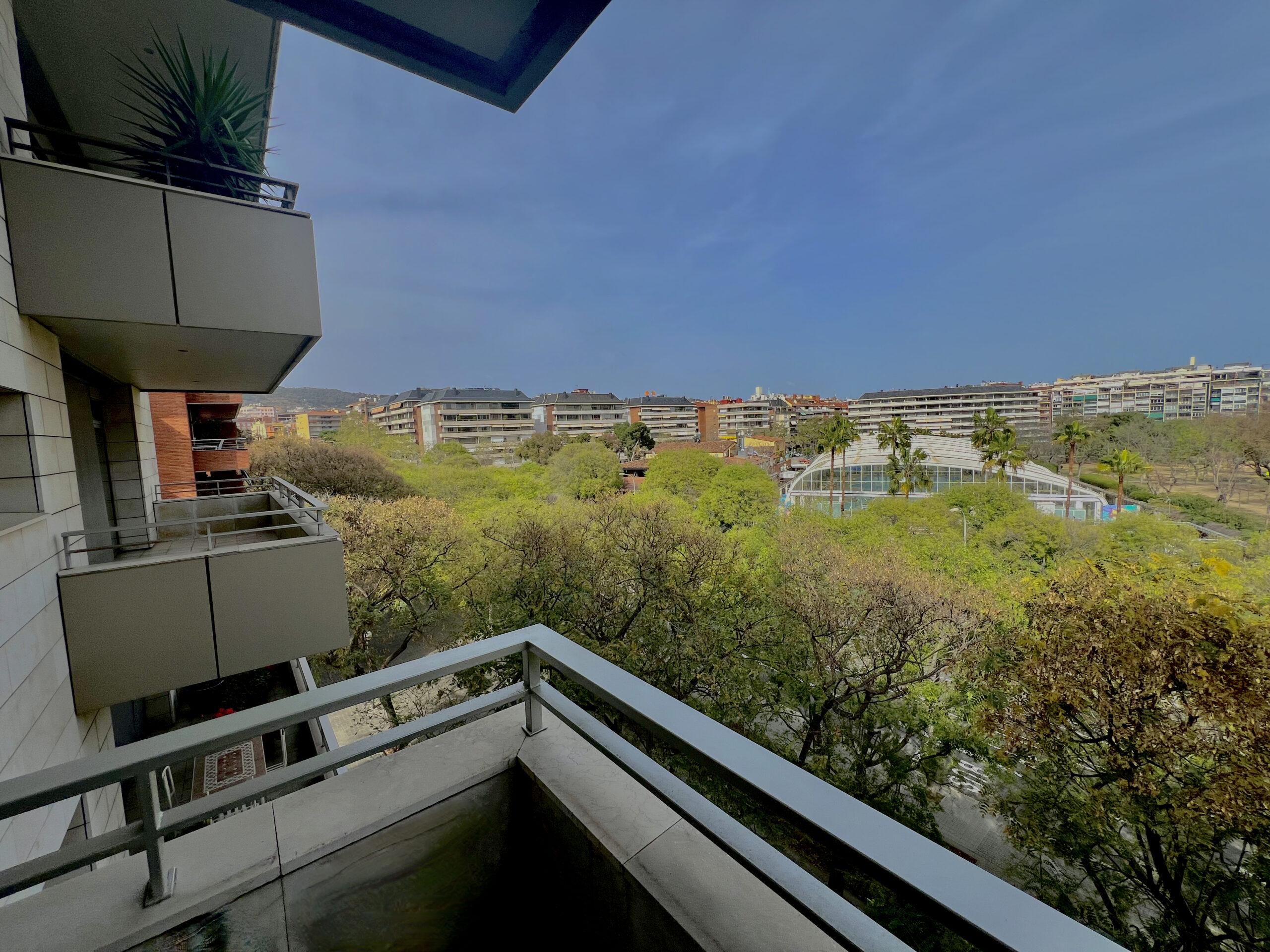
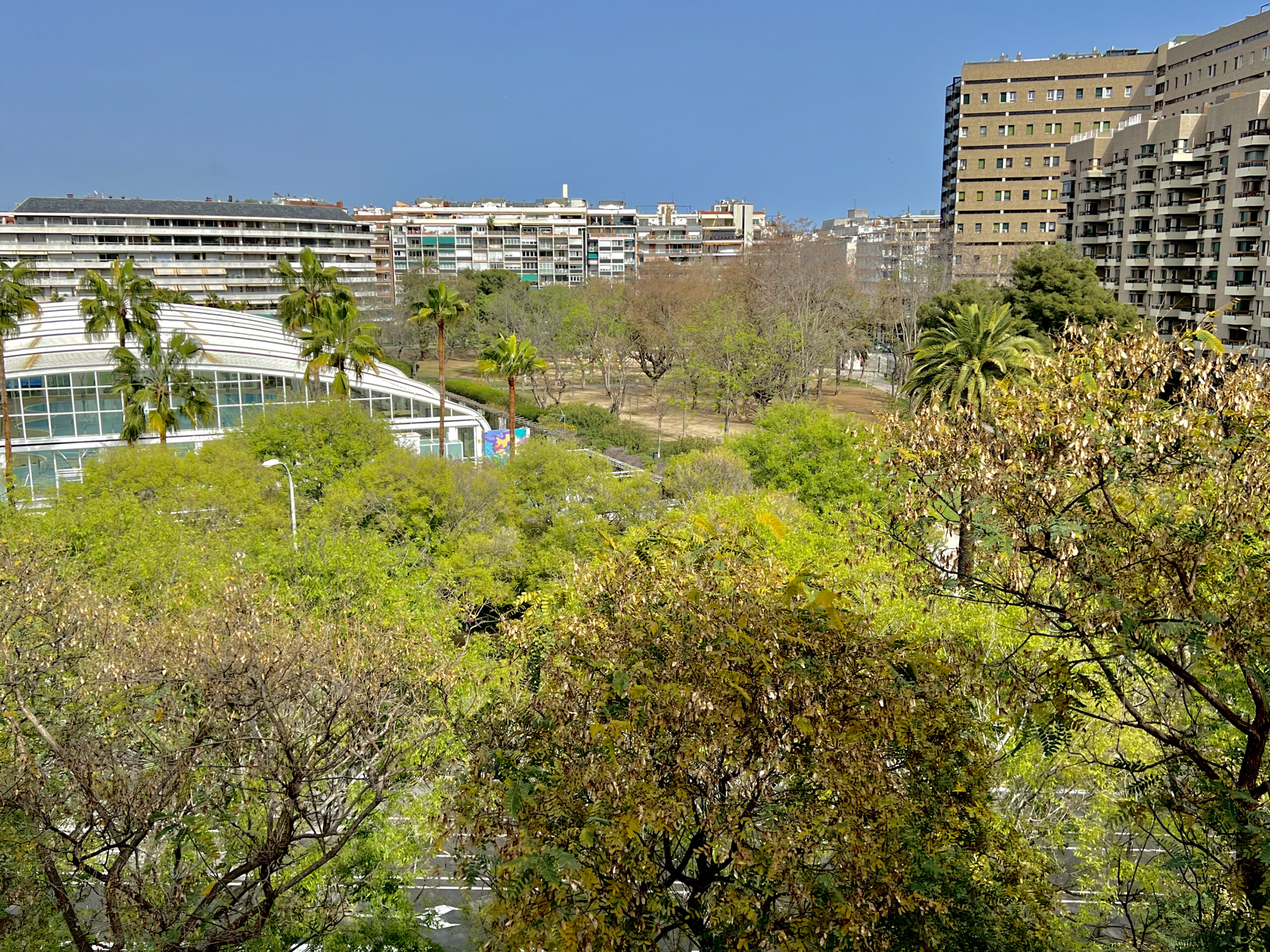
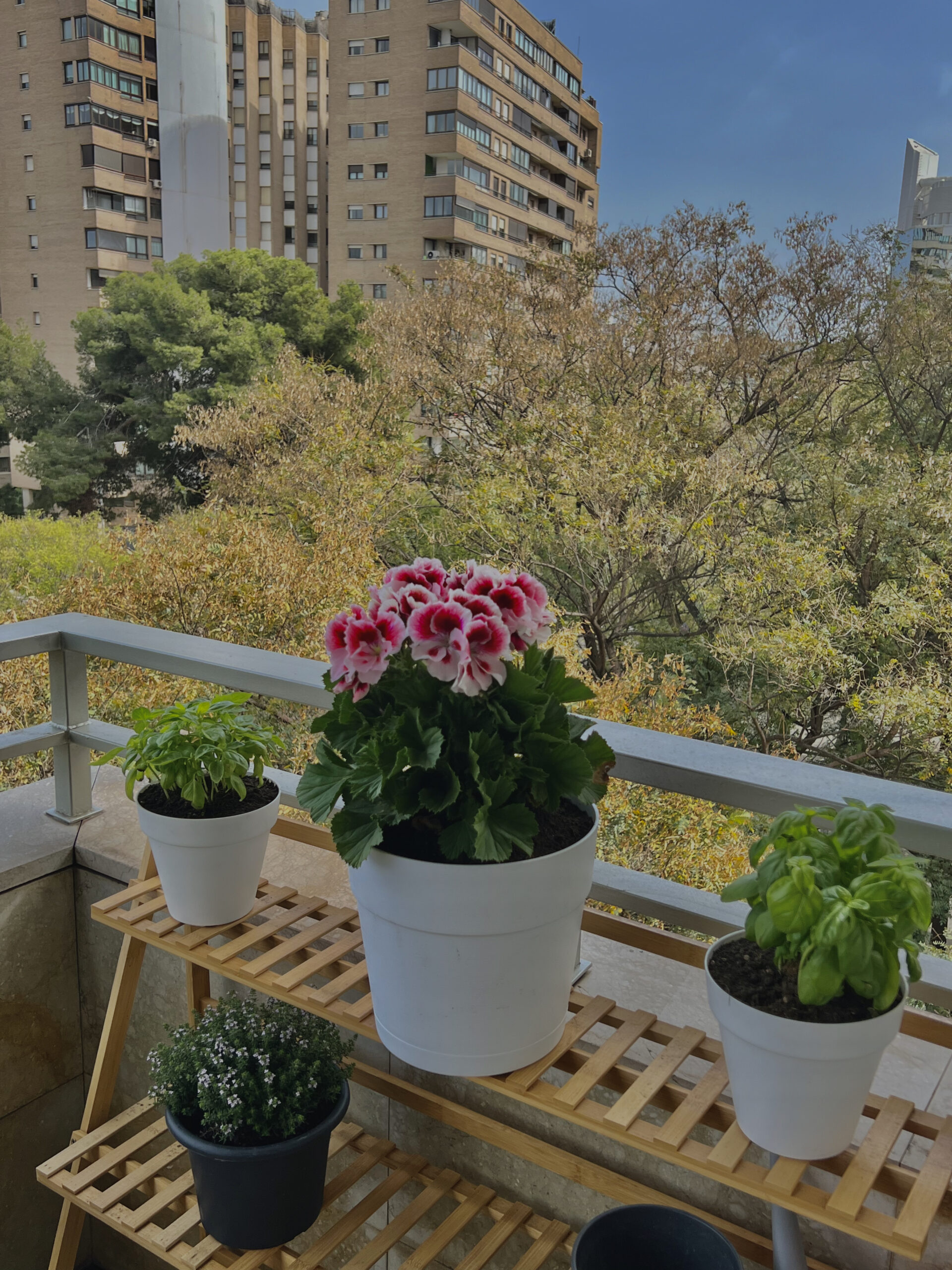
When the windows and doors are open, the breeze on one’s skin is exhilarating. It reminds me of a time when as an innocent young boy around twelve lying alone at home naked on my bed with the windows wide open—a Spring breeze gently sent goosebumps over my skin and I recall feeling so alive.
Another difference is the size of the appliances. Everything (the rooms, televisions, frig, stove, oven, sink, dishwasher, showers, bathtubs) is much smaller here. Again the culture comes into play. Everyone loves to eat out together rather than stay at home alone and cook. It is a communal country and the home is for sleeping and protection from the elements rather than a place to sit and live a sedentary life. So different from America where so many live in homes far bigger than their lives.
Other differences are radiators in each room for heat—I had not seen one of those since my elementary school days. And built-in cabinets for clothes rather than closets—yet another space-saving consideration. There are few clothes dryers, everyone hangs their clothes out in the fresh air. We have a dryer but we have adapted to this custom. The scratchy and stiff clothes happily remind me of my childhood. Also, it feels like the right thing to do, as the Barcelona culture has fully embraced the need to conserve our resources and protect our planet.
Another reminiscence of childhood is the freedom to roam through the ancient space of our city on foot like I did as a boy wandering through the Appalachian mountains. We are not confined to our living space, we simply walk out our front door and this marvelous and extremely walkable city awaits our next discovery. We feel safe and thankfully have the physical power to go wherever we like.
Therefore, we find that our sense of identity has been enhanced (Gina feels completely comfortable walking or utilizing public transportation alone) and we are gathering confidence in interacting with others as we learn more Spanish each day. This gives us the courage to get out and experience this great city.
Finally, I’ve alluded to this previously, in America, we greatly value the cultural idea of “sacred or physical space” that others should not intrude upon. But Spain is a communal country, and if one is bothered by people (even total strangers) touching or kissing you, then a lot of adapting is required. I am a “touchy-feely” kind of person, but even I (because of my cultural background) have had to adapt and relinquish some sense of protection of my “sacred space.”
Four months in this romantic, sensual, artistic, beautiful, historic, noisy, seaside city. But who’s counting? We are savoring everywhen. And so far, we wouldn’t trade it for anything. More soon. If you enjoy this, please subscribe by clicking HERE.
2 responses to “Candid Thoughts After Four Months of Life in Spain”
So many thoughts and memories of our time living abroad. Europe is a fascinating amalgamation of cultures and cultural values. How cultures view and experience time is fundamental. Spain and Switzerland may seem to be 2 extremely different examples of the ways each culture observes time until you ask the question is time linear (everything has a beginning, middle, and end) or is it circular? So many other cultures see time as circular. Africa, Asia, and many indigenous cultures come to mind. It’s much like learning a new language this learning a new way to experience time and life. There’s also the wonders of different ways of sharing space and things and time: life really. Wishing you all the best as you begin this season or tidal phase. Much love…
Beautiful thoughts that can come only from someone who has experienced this time-shift cultural phenomenon. Thanks, Andy. Your words are like gold.